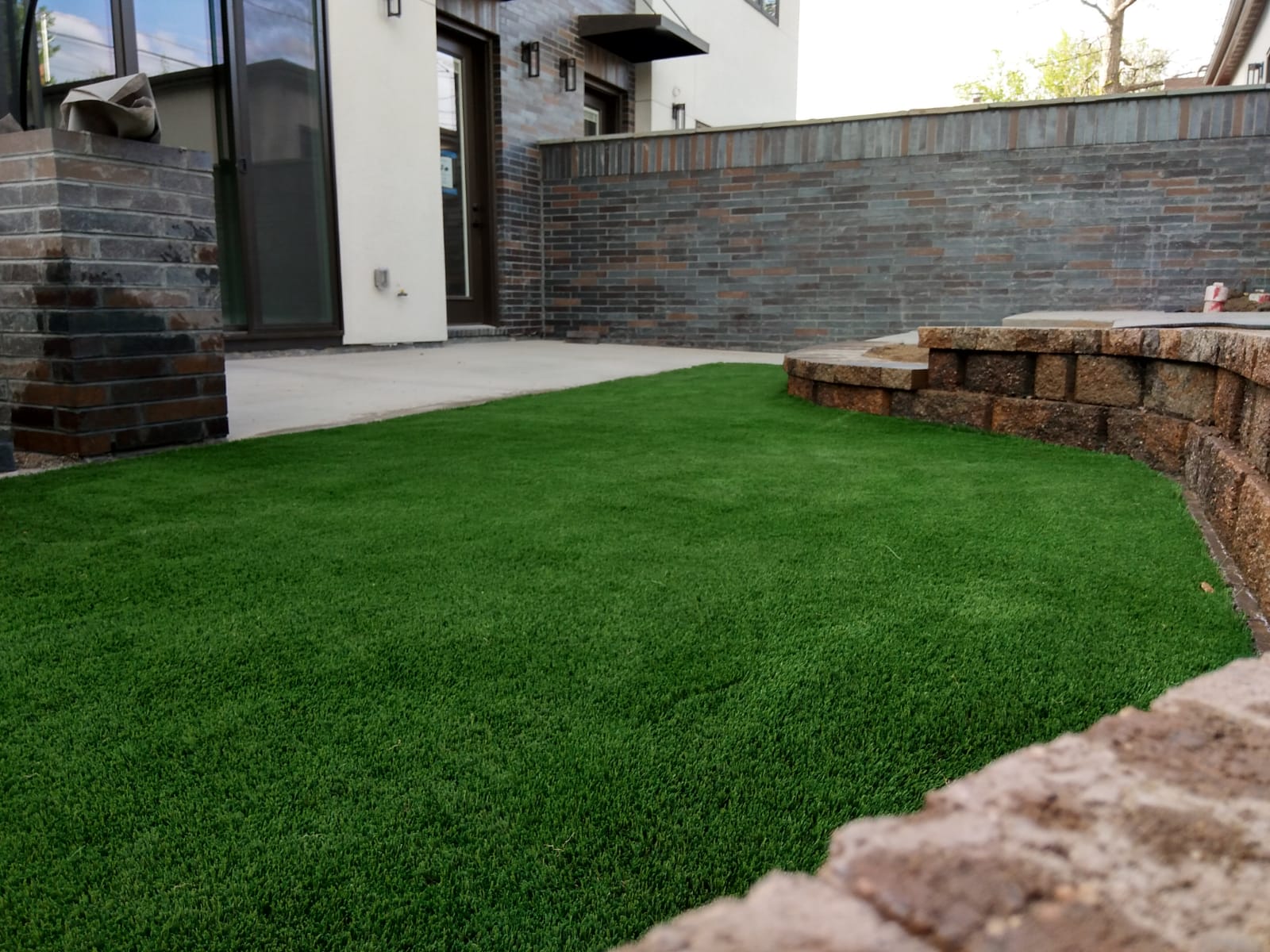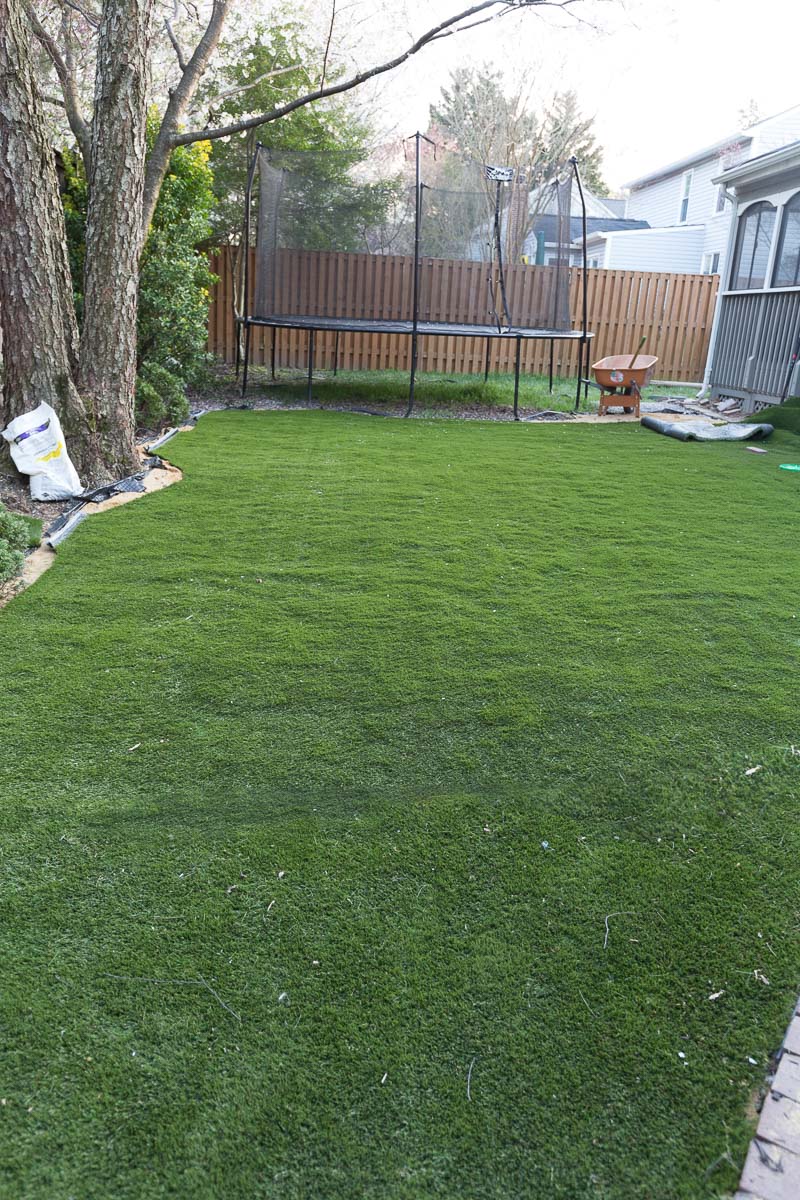Why Choose Artificial Grass Installation in Canoga Park for Your Lawn?
Why Choose Artificial Grass Installation in Canoga Park for Your Lawn?
Blog Article
Top Reasons to Consider Artificial Turf for a Lush and Low-Maintenance Lawn
As home owners progressively look for sustainable options for exterior areas, artificial lawn offers an attractive alternative to conventional yards. The benefits extend past plain aesthetics and sustainability; checking out the complex implications of synthetic turf reveals a detailed method to yard management that qualities much deeper factor to consider.
Year-Round Greenery
One of the most significant advantages of synthetic yard is its capacity to give year-round plant, no matter of environment problems. Property owners usually encounter obstacles in keeping a lively grass as a result of seasonal modifications, droughts, or heavy rainfall. Synthetic grass eliminates these concerns, ensuring a constantly lavish look throughout the year.
This artificial option is engineered to withstand varied weather condition situations, from sweltering summer heat to cold winter temperature levels. Unlike all-natural turf, which might brown or become irregular during severe conditions, fabricated lawn keeps its dynamic color and appearance, improving the aesthetic allure of any type of landscape.
Furthermore, artificial yard is immune to insects and diseases that typically impact all-natural yards. This durability contributes to its long-lasting beauty, as there is no demand for chemical therapies or fertilizers that can be unsafe to the atmosphere. Home owners can take pleasure in the visual benefits of a properly maintained lawn without the intermittent difficulties posed by natural yard care.
Decreased Upkeep Efforts
Fabricated turf dramatically reduces maintenance initiatives, permitting homeowners to take pleasure in a pristine grass without the lengthy jobs connected with natural turf treatment. Among the most noteworthy benefits of artificial lawn is the elimination of normal mowing. Without any need for a lawnmower, homeowners save both time and the expense of upkeep related to this tools.

Cleaning up man-made grass is uncomplicated; an easy rinse with a tube or the occasional brushing to eliminate particles is typically adequate - artificial grass. This convenience of care enables home owners to spend more time appreciating their outdoor rooms as opposed to laboring over them. In summary, the minimized upkeep efforts linked with artificial turf make it an enticing selection for those seeking an attractive, problem-free lawn
Water Preservation Benefits
The significant reduction in upkeep efforts connected with man-made yard reaches water conservation, making it an eco-friendly option for property owners. Standard yards need considerable amounts of water to stay vivid and rich, frequently resulting in excessive water usage, especially in deserts. In comparison, fabricated yard removes the requirement for routine watering, significantly minimizing the general water consumption in your yard.
By selecting artificial turf, homeowners can preserve hundreds of gallons of water annually. This shift not only benefits individual houses yet likewise contributes to wider ecological initiatives targeted at lowering water waste. In locations experiencing water scarcity, the adoption of artificial yard can play a substantial function in reducing the effects of dry spell and making certain that beneficial water resources are utilized a lot more effectively.
Furthermore, the installment of man-made turf can assist reduced municipal water need, profiting the community as a whole. With expanding awareness of ecological problems, picking man-made grass acts as a proactive action towards lasting landscaping, aiding to preserve natural water sources while keeping a visually pleasing exterior space (artificial grass). In recap, man-made yard provides an engaging service for water conservation, lining up ecological responsibility with modern-day landscaping requirements

Bug and Allergic Reaction Reduction
A substantial benefit of mounting artificial lawn is its ability to decrease insects and allergens in outdoor rooms. Conventional lawn lawns frequently act straight from the source as reproducing grounds for insects such as insects, ticks, and ants, which can create discomfort and wellness threats for pet dogs and households. In contrast, artificial grass removes the organic product that draws in these insects, thereby dramatically decreasing their populations in your yard.
Moreover, natural turf can nurture mold and mildew, pollen, and other irritants, which can set off allergies and respiratory issues for delicate people. Artificial grass provides a cleaner setting, lowering the capacity for allergenic responses. Unlike all-natural turf, synthetic grass does not generate pollen, making it an excellent choice for allergy victims seeking to enjoy their outside spaces without the danger of flare-ups.
Additionally, the absence of soil in man-made turf indicates there is much less dirt and dirt, additional reducing air-borne irritants. This low-maintenance choice not only enhances the aesthetic appeal of your yard but also advertises a healthier outside setting, permitting households to enjoy their yards without the continuous fear of allergens and pests. Therefore, man-made grass is a tactical option for those prioritizing convenience and health and wellness in their exterior home.
Long-Term Cost Savings
Spending in synthetic lawn can lead to significant lasting price savings for home owners. Man-made turf gets rid of the demand for routine yard maintenance expenses, such as mowing, fertilizing, and watering.
Moreover, the long life of artificial lawn further enhances its cost-effectiveness. Most premium man-made grass products can last 15 to 25 years with marginal upkeep, minimizing the need for substitute or considerable repair work. On the other hand, all-natural yard might call for frequent reseeding and normal care, which can swiftly include up in costs.
Utility savings are another critical element. Homeowners can expect to see lower water expenses, as artificial grass does not need irrigation. Furthermore, the reduction in grass treatment solutions can release up valuable time and sources, allowing homeowners to assign their budgets somewhere else.
Conclusion
In recap, man-made turf provides countless advantages for house owners looking for a low-maintenance and vibrant landscape. Its capacity to provide year-round plant, combined with decreased maintenance efforts and considerable water preservation, makes it an attractive choice. In addition, the reduction of allergens and parasites adds to a much healthier outdoor setting. Eventually, the long-term cost financial savings related to synthetic lawn strengthen its standing as a sustainable and useful option for improving exterior areas.
Fabricated grass significantly minimizes maintenance initiatives, allowing homeowners to enjoy an immaculate lawn without the taxing jobs connected with all-natural lawn care.The significant reduction in maintenance initiatives associated with synthetic grass extends to water conservation, making it an ecologically try this web-site pleasant choice for homeowners. In comparison, man-made grass eliminates the demand for regular watering, substantially decreasing the general water intake in your backyard.
In locations experiencing water shortage, the adoption of fabricated lawn can play a significant function in reducing the impacts of drought and making explanation certain that useful water resources are made use of extra efficiently.
With expanding recognition of environmental concerns, selecting fabricated yard serves as an aggressive step in the direction of lasting landscaping, helping to maintain all-natural water sources while preserving an aesthetically pleasing exterior room.
Report this page